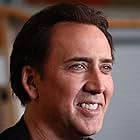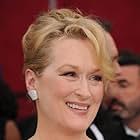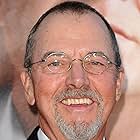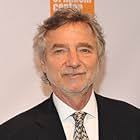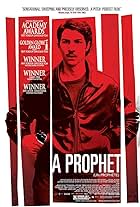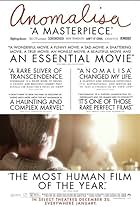Uno sceneggiatore straziato d'amore va in crisi quando tenta e non riesce ad adattare il libro "Il ladro di orchidee" di Susan Orlean per il grande schermo.Uno sceneggiatore straziato d'amore va in crisi quando tenta e non riesce ad adattare il libro "Il ladro di orchidee" di Susan Orlean per il grande schermo.Uno sceneggiatore straziato d'amore va in crisi quando tenta e non riesce ad adattare il libro "Il ladro di orchidee" di Susan Orlean per il grande schermo.
- Vincitore di 1 Oscar
- 67 vittorie e 100 candidature totali
- Ranger Steve Neely
- (scene tagliate)
- Orlean Dinner Guest
- (as Agnes Badoo)
Recensioni in evidenza
The film starts off appropriately enough inside Being John Malkovich(or more precisely on the set of Being John Malkovich when Malkovich is inside his own head) But this is no sequel...no no, much more than that. We soon go back to the beginning. Not the beginning of the movie, but to the beginning of it all. To the dawn of the universe, a zero in the fabric of time itself hurling toward the deep chasm of entropy. From the primitive scribblings of early man to the manic late night scribblings of the neurotic Charlie Kauffman(played by Cage)
What we have here is a film about orchid thieves, high society New York socialites, screenwriters, identical twins, crocodiles, narcotic rings, and internet porn...err, more aptly put: a movie about a guy writing a movie about a book inside of another movie. Oh yeah, and it's based on a true story. Sound confusing?
Adaptation is the screen treatment of the best selling non fiction book The Orchid Thief. Only thing is the main character in the film is doing the adapting, and writing himself into script. In the film we go from early primordial man to Being John Malkovich's floor seven and a half...and somehow it all makes sense.
Is this an incoherent parable on the parasitic relationship between writers and their subjects? The evolution from single cell organisms to paleolithic glee? Or a look at how everything seems to have a purpose in life? Somehow between the obscure Hollywood industry injokes, Silence of the Lambs references, and celebrity Boggle tournaments I missed something.
Unfortunately by the third act(when the movie goes from non fiction to fiction) Adaptation unravels and ends up gravely falling apart. But perhaps that is the point. A film about a real life struggle to adapt a book that doesnt have much suspense in it, and the peril of trying to work some fictional thriller plotlines in at the last minute. Either way, hats off to Jonze and Kauffman for once again bringing us an audaciously unconventional idea and tearing down the box. All this from the adaptive skills of an orchid.
~.c//0ry
I wanted to see this film because I had enjoyed BJM and was interested to see what Jonze did next. I came to it with a vague knowledge of the plot but nowhere near enough o have expectations. For the majority of the film, the different style and presentation kept me deeply interested. The way the different stories occurred in different times and places worked a lot better than I would have expected it to. The plot gets increasingly difficult to follow and you'll get as much as you want from it. For those just looking for a simple story then you'll have a nice neat resolution, if you want more then more is there for you as you try to work out what part of the film is real and what part isn't.
I came away with mixed feelings. I felt that the ending was not as clever as it thought it was and didn't give a good ending for those who weren't happy to accept things at face value. I didn't feel let down I just felt that the last section of the film stepped down a gear rather than up. I know that this is the point that Jonze was making perhaps, by allowing Donald's derided ending come to live and be the replacement for Charlie's original aim. But it didn't totally do it for me. Up till this section I was hooked and felt that the various stories all worked to form a mix of drama and comedy. However the end does a disservice to it's characters.
Cage shows that the recent cr*p he has been in doesn't mean he can't act (just that he doesn't). He really brings his two characters to life and plays them so well that it is easy to forget that it is the same person in both roles. Cooper is wonderful and deserved his Oscar for support. Streep, as much as I dislike her, was very good and brought that difficult character out although I did feel she was the one most betrayed by the film's end.
Overall this was an interesting film that worked in most areas. It's difference and it's inventiveness were such that I wanted to keep watching. However I, and I know others will disagree, felt that this uniqueness was not well served by the end of the film. I understand that it was not meant to exist in the same way as the majority of the film but I still felt that the ending didn't meet the standard set by the rest of the film.
It remains the single comment to have generated the most feedback for me. More than "The Passion of the Christ," and more than yes, even my upsetting review of 2003's "Peter Pan" (which seemed to anger the small die-hard fanbase for the film that lurks on these message boards - by the way, I've had to clarify this sentence by adding "for the film" because someone PM'd me yesterday accusing me of implying I have a fanbase on IMDb...no, I am referring to the film's fanbase, so please hold off on the accusations). I digress. In summary I gave "Adaptation" a negative rating and to my surprise, perhaps because I avoided totally slamming the film, the fans responded to me with kind words rather than harsh ones; conceivably they too had initially taken a dislike to the film? I made a daring move. I bought "Adaptation" on DVD for ten bucks, thinking, "I've got nothing to lose." Plus, the front cover looked cool anyway.
I watched it again (after taking into mind several themes and self-referential layers I had failed to visualize before) and was blown away by the originality and genius of the movie.
My hugest complaint regarding "Adaptation," originally, was its absurd ending -- I felt it was out of place, silly, and totally anti-climactic. Little did I realize this was the point -- to be a parody of the typical Hollywood blockbuster.
There are so many underlying jokes, gags and self-references that the film grows better -- like "Back to the Future" -- on each new viewing. You're always finding new stuff.
I found new respect for Nicolas Cage as an actor after my second viewing of this. I have always liked Cage despite the criticism he receives for being a one-sided actor; here, he proves he's capable of creating two very different human beings out of the same mold. Brilliant, Oscar-worthy stuff.
All in all I got it wrong the first time. "Adaptation" isn't a film that starts out clever and descends into a messy and stupid finish. Well, actually, it is. But that's the point. I didn't get it before. Now I do.
If you disliked this film, my advice? Watch it again. It knows a bit more about itself than you probably do. And read up on the message boards here a bit to get a clearer grasp of what's going on if you're totally clueless.
P.S. I'd like to thank all the people on this site who messaged me in response to my review.
Nicolas Cage plays Charlie Kaufman, the lonely, insecure and socially awkward screenwriter who is hired to adapt "The Orchid Thief," written by Susan Orlean, who is portrayed by Meryl Streep. The novel itself concerns the story of John Laroche (played by Chris Cooper), a smug plant dealer who was arrested in 1994 for poaching rare orchids in the Fakahatchee Strand State Preserve. As Kaufman struggles to write the script, his troubles are compounded by the presence of his twin brother, Donald (also played by Nicolas Cage), who is Charlie's exact opposite: reckless, carefree, over-confident and perhaps even a bit dim. The script for 'Adaptation' darts back and forth between different moments in time, either chronicling Kaufman's screen writing exploits or Orlean's experiences in writing her novel. At several points in the story, more dramatic flashbacks take place: we see Charles Darwin first penning his theories of evolution and adaptation, a brief history of the grim activity of orchid-hunting, and, in one particularly impressive sequence, we are taken back billions of years to the beginning of life, to trace how Charlie Kaufman came to be here today.
Though purportedly based on a true story, the events of the film are highly fictionalised, and the story always treads a fine line with reality, with the audience never certain of whether or not an event is real (in the context of the film) or merely a creation of Charlie's (or even Donald's) imagination. Charlie Kaufman (the true-life writer, not the character) often receives most of the accolades for the film, but it is director Spike Jonze who shared the vision to execute "Adaptation" on screen. His approach to film-making is always original and daring, never tentative of trying something unique for the sake of the film, even if it may offend the tastes of an audience that is unaccustomed to anything other than the mundane clichés of the modern movies that are churned out daily by Hollywood studios. If this wasn't completely obvious after the weird, twisted, fascinating 'Being John Malkovich,' then 'Adaptation' put any lingering doubts to rest. The director, who started his career directing music videos, seems to share a singular understanding with Kaufman the writer, and a mutual agreement on what the film is actually trying to say.
In addition to a clever story, 'Adaptation' contains some of the finest acting of the 2000s, presenting an excellent selection of seasoned talents at the top of their games. In arguably the greatest role(s) of his career, Nicolas Cage is phenomenal as both Charlie and Donald Kaufman, twin brothers whose complete polarity is startlingly evident in the execution of their respective film scripts. Charlie, whilst writing his adaptation, is determined to avoid the usual clichés and construct a film without any conventional plot, to write a movie "simply about flowers." Donald, however, blissfully oblivious to his own unoriginality as a writer, churns out a hackneyed psychological thriller, entitled 'The 3,' in which the serial killer, his female hostage and the cop are the very same person. In an ironic twist of fate, Donald's trite treatment is hailed as a masterpiece, adding further to the inadequacy already being felt by his disillusioned brother. Cage is excellent, and often absolutely hilarious, as both characters, giving each brother a distinct attitude and personality, so that it is possible to tell immediately which is which even though their physical appearance is exactly the same.
Meryl Streep is equally excellent as Susan Orlean, the journalist for "The New Yorker" who researches John Laroche and endeavours to catch a glimpse of the famed and very rare Ghost Orchid, if only to understand what it feels like to be passionate about something. Chris Cooper arguably steals the entire show as the charismatic and enigmatic Laroche, whose tragedy-afflicted life is dedicated to mastering numerous obscure fields (such as orchid-collecting, or fish-collecting), each of which is sporadically cast aside and permanently forgotten as soon as he feels it's time to move on, to "adapt" to another hobby. From four Academy Award nominations, only Cooper walked away with a statue. Notably, Charlie Kaufman's screenplay was also nominated for an Oscar. Since the script was credited to both "Charlie Kaufman and Donald Kaufman," the latter became the only entirely fictional person in history to have been nominated for an Academy Award.
In a nutshell, 'Adaptation' is all about failure. Charlie Kaufman is absolutely determined to write an original script, without cramming in "sex or guns or car chases or characters learning profound life lessons or growing or coming to like each other or overcoming obstacles to succeed in the end." However, after he eventually asks Donald to complete the script for him, it descends into exactly that. A visit to a screen-writing seminar by Robert McKee (memorably played by Brian Cox) who is famous for warning strongly against Deus Ex Machina is used as exactly that. Charlie Kaufman the character fails miserably in writing his script, but, ironically, Charlie Kaufman the writer succeeds ever so magnificently!
It's fair to say that there is a fair amount of violence in the film, and even when you know it's coming, you're still caught off guard. Spike Jonze is merciless in this regard. Some of the scenes are incredibly graphic, in fact.
There is a certain adolescent male tone to the film (the violence + sexual fantasy + masturbation). This is partially due to characterization and partially due to the director's own aesthetic and perspective. It's not a bad thing, necessarily, either. It just feels as if an unassuming (white male) kid who grew up thinking a lot about girls and watching movies where stuff blowed up made this film... See it and you'll know what I'm saying.
The script is crazy. Absolutely zany. Akin to "Being John Malkovich" really. Fortunately, this well gives opportunity for Nic Cage, Meryl Streep, and Chris Cooper to really be free with their art.
Cage has a difficult role, portraying two very different identical twin brothers. Cage is at the emotional core of the film. If his performance doesn't resonate, the film doesn't work. I thought Cage was excellent. And that the script really gives him some wonderful, challenging material to work with. His first scene with Tilda Swinton (looking gorgeous!) is excellent.
Meryl Streep...well, what can be said. She's fantastic. She exudes a tiredness and connectedness and hopelessness and sadness, evolving the character brilliantly over the course of the film.
Similarly, Chris Cooper brings a humanity to the role of the Orchad Thief, really grounding the narrative and making it all believable. Again, he's given a brilliant opening scene and he works wonders with it. Throughout, he is believably arrogant, lonely, vulnerable, and just plain real. Cooper's performance is as rich as any other I've seen this year; truly, truly sublime.
"Adaptation" is certainly not for everyone. If you're looking for something starkly different and simmering with originality, give this film a try, though. Amidst some cloying self-referential clap-trap, there are actually some really freshing film moments.
Lo sapevi?
- QuizNicolas Cage has said that during the filming of this movie, he ignored all of his acting instincts and played the part of Charlie Kaufman exactly as director Spike Jonze asked him to. He then received an Academy Award nomination for it.
- BlooperAt the end when Charlie pulls out of the parking garage, crew member Jennifer Porst sits next to him in the car for a single shot, though he is riding alone.
- Citazioni
Charlie Kaufman: There was this time in high school. I was watching you out the library window. You were talking to Sarah Marsh.
Donald Kaufman: Oh, God. I was so in love with her.
Charlie Kaufman: I know. And you were flirting with her. And she was being really sweet to you.
Donald Kaufman: I remember that.
Charlie Kaufman: Then, when you walked away, she started making fun of you with Kim Canetti. And it was like they were laughing at *me*. You didn't know at all. You seemed so happy.
Donald Kaufman: I knew. I heard them.
Charlie Kaufman: How come you looked so happy?
Donald Kaufman: I loved Sarah, Charles. It was mine, that love. I owned it. Even Sarah didn't have the right to take it away. I can love whoever I want.
Charlie Kaufman: But she thought you were pathetic.
Donald Kaufman: That was her business, not mine. You are what you love, not what loves you. That's what I decided a long time ago. What's up?
Charlie Kaufman: [stunned] Thank you.
- Curiosità sui crediti"We're all one thing, Lieutenant. That's what I've come to realize. Like cells in a body. 'Cept we can't see the body. The way fish can't see the ocean. And so we envy each other. Hurt each other. Hate each other. How silly is that? A heart cell hating a lung cell." - Cassie from THE THREE
- ConnessioniFeatured in Siskel & Ebert & the Movies: The Best Films of 2002 (2003)
- Colonne sonoreOne Part Lullaby
Written by John Davis, Lou Barlow and Wally Gagel
Published by Careers-BMG Music Publishing, Inc. o/b/o itself, Endless Soft Hits, Loobiecore and Blisswg Productions
Performed by The Folk Implosion
Courtesy of Interscope Records
Under license from Universal Music Enterprises
I più visti
Dettagli
- Data di uscita
- Paese di origine
- Sito ufficiale
- Lingue
- Celebre anche come
- Il ladro di orchidee - Adaptation.
- Luoghi delle riprese
- Aziende produttrici
- Vedi altri crediti dell’azienda su IMDbPro
Botteghino
- Budget
- 19.000.000 USD (previsto)
- Lordo Stati Uniti e Canada
- 22.498.520 USD
- Fine settimana di apertura Stati Uniti e Canada
- 384.478 USD
- 8 dic 2002
- Lordo in tutto il mondo
- 32.802.727 USD
- Tempo di esecuzione
- 1h 55min(115 min)
- Colore
- Mix di suoni
- Proporzioni
- 1.85 : 1













